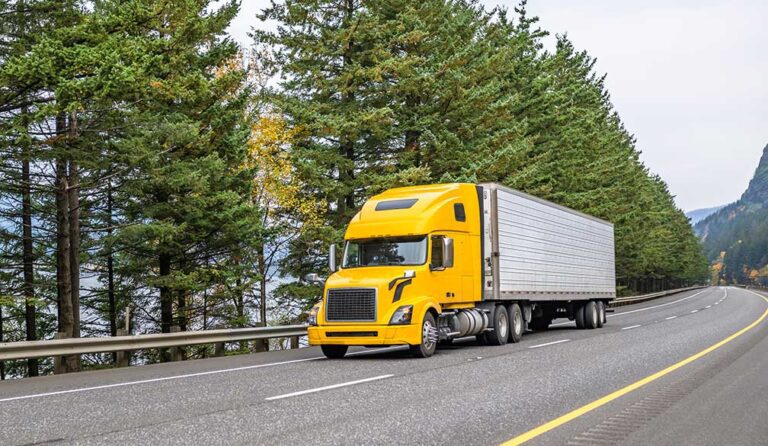The Commercial Vehicle Safety Alliance’s (CVSA) 2024 International Roadcheck is coming soon to an inspection location near you. This year’s inspection blitz is set for May 14-16.
While it’s important for every driver to be prepared for inspection, it could be critical if you’re the owner-operator of a single truck or a small fleet.
There’s no question that being pulled around behind the scale or getting stopped at another location for an inspection is an inconvenience. In fact, some truck owners avoid any possibility of getting inspected during the CVSA’s annual inspection event by scheduling a vacation during the Roadcheck dates. After all, during an event when 14 trucks and buses are inspected every minute of the day, the chances that your vehicle will be one of them is higher than usual.
Whether you’ll be on the road or not, however, it pays to prepare for Roadcheck.
To help truck owners and drivers avoid unpleasant surprises during inspection, the CVSA announces the Roadcheck dates well in advance, along with the focus areas for each year’s campaign. This gives you an opportunity for you to check your own operation and equipment, focusing on areas that inspectors have on their list. Of course, in reality, inspectors are out every day — and it pays to be ready for inspection at any time of the year.
During this year’s Roadcheck, the CVSA is focusing on drug and alcohol possession, along with tractor protection and anti-bleedback systems.
While the first would seem to be easy to comply with — don’t have controlled substances or alcoholic beverages in the truck, and don’t operate under the influence of them — there are additional steps to take. For example, if you have prescription medications, make sure they’re in the original container with a label showing they are legally prescribed for your use. Also, make sure that you’re taking the medications as prescribed, and that you’re not driving if you aren’t supposed to be.
Another part of the drug and alcohol inspection focus will be a check of your record with the Federal Motor Carrier Safety Administration’s (FMCSA) Drug and Alcohol Clearinghouse. As an owner-operator, if you are not leased to a carrier and subject to the FMCSA’s controlled substances program, you’ll need to be enrolled in a consortium for random testing.
If you haven’t changed jobs or leases in the past few years, it’s possible you aren’t registered with the Clearinghouse at all — and it’s time to find out. If you’re not registered, visit the Clearinghouse website and do so. This can save delays during an inspection. In addition, you’ll already be in the system should you decide to seek new employment or another lease situation.
The Roadcheck’s other focus area is mechanical in nature and covers an area of your equipment that you should be checking anyway.
Inspectors will be paying particular attention to air lines, looking and listening for leaks and other issues. If you’re driving, you’ll be asked to disconnect the gladhands to test the tractor’s protection valve. Gladhands are notorious for leaking because seals deteriorate with age and exposure to air. It’s a good idea to have a couple of extra seals on hand, especially if you drop and hook different trailers often. If a gladhand leak is found, you may need to replace a set on the spot.
Regular in-cab checks of the air system should be part of your pre-trip routine anyway, but it’s especially important to perform them before an official inspection. Always chock the wheels before beginning. Test for leaks by letting the air pressure build until the compressor cuts out; then shut off the engine, push in the tractor and trailer protection valves and apply pressure to the brake pedal. Listen for air leakage and watch the gauge. The system should not lose more than 4 pounds of pressure in one minute.
Your next test involves turning the key to the “on” position without starting the truck; then dump the air pressure from the system by depressing and releasing the brake pedal repeatedly. Before the system drops below 60 psi, the warning devices, including a light and a buzzer, should activate. Continue dumping air from the system until the tractor and trailer protection valves pop out. This should happen when pressure reaches 40 psi or less.
If a leak is detected, if warning lights or buzzers don’t activate, or if protection valves don’t engage, repairs are needed. Whether you perform maintenance on the truck or trust it to a vendor, perform the same checks again after the maintenance has been done.
Of course, CVSA focus areas aren’t the only things that will be inspected, so make sure everything is in good working order and that your records are well-maintained.
Keep in mind that each jurisdiction has its own method of choosing which trucks to inspect. Some use a specific number and inspect every fifth truck, regardless of who owns it. Others may target a specific type of truck, such as logging trailers or flatbeds. Still others might look for obvious issues, such as a smoking wheel or an audible air leak. Some look for signs of neglect, such as trash strewn over the dashboard or dirty windows, under the premise that a driver who doesn’t keep the vehicle clean and organized may not pay much attention to maintenance, either.
Regardless of the reason for a truck and driver’s selection for inspection, a violation can cost you thousands of dollars for repairs, especially if you can’t move the truck and the service must come to you. The loss of time can also impact your next pickup or delivery and cost you a load — or even a customer.
Also remember that CSA scores for both your business and the driver can be impacted by inspection results. Some shippers, as well as brokers, look at CSA scores when selecting a carrier. Violations for maintenance issues could cost you revenue if your ability to procure loads is impacted by inspection violations.
It’s a rare driver that actually looks forward to being instructed to pull around behind the scale for inspection. However, if you’re prepared, your chances of getting through with flying colors (and maybe a shiny new CVSA sticker for your windshield) are greater, and everyone is just a little bit safer.
Cliff Abbott is an experienced commercial vehicle driver and owner-operator who still holds a CDL in his home state of Alabama. In nearly 40 years in trucking, he’s been an instructor and trainer and has managed safety and recruiting operations for several carriers. Having never lost his love of the road, Cliff has written a book and hundreds of songs and has been writing for The Trucker for more than a decade.











